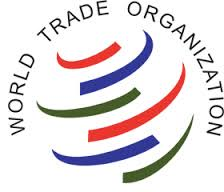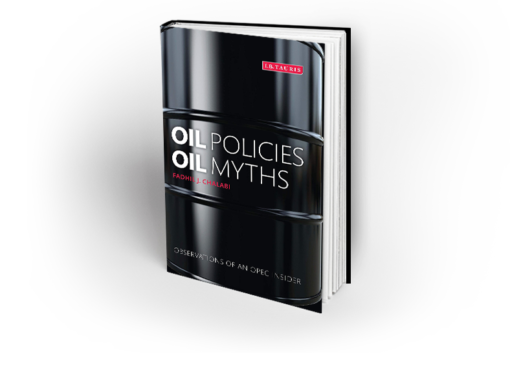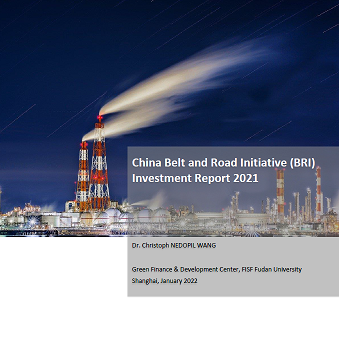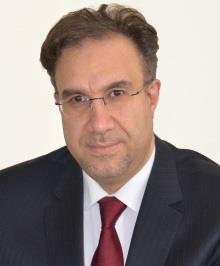Iraq’s development and the development of its oil sector are interwoven and should be viewed in a wider perspective. The Iraqi economy will, for a foreseeable future, depend on oil revenues to finance its investments and buttress its operations. In the longer term, Iraq’s stability and prosperity will depend on how successful it is in establishing a sustainable base in agriculture, in industry, and in services, and on how efficient it has been in utilizing its natural resources.
War reparations, accumulated debts, building the damaged infrastructure and meeting the basic needs of a population deprived for a long time, would undoubtedly weigh heavily in the present economic policy decisions. But considerations for the development and stability of the economy, for meeting the need of the growing population, and its aspiration for a sustainable higher standard of living, call also for concentrating on the fundamentals of growth and development.
A lost decade of sanctions, and decades of one party rule, militarism, wars, and perpetuate internal and external conflicts, coupled with an erroneous development strategy anchored on the omnipresent of the public sector in the economy, have resulted in an economy totally inadequate; an economy that has failed to meet the needs and aspirations of its population, and be integrated in the world economy.
The country may, on the surface, look strongly linked to the world economy. It exports most of its crude oil and imports most of its foodstuffs, raw materials, and capital goods. But, its domestic production sectors (goods and service producing sectors) make very little if any contribution to this trade. The inadequacy of Iraq’s economy was well illustrated during the sanction under Saddam Hussein regime. After four decades of investments in agriculture, in manufacturing, and in services, the greater part of the country’s need for goods and services were met from foreign supplies through the Oil-for-Food Program
The inadequacy and inefficiency that characterized Iraq’s economy and its performance extended also to the performance of its oil sector and utilization of its other natural resources. For example, in the period 1999-2001, the volume and value of Iraq’s oil was close to the record level, averaging 2.5 mbpd. This production level, it is reported, was relatively high, and was, contrary to the common perception, only exceeded during five years in Iraq’s entire history of oil production before the regime change. Yet this level, when expressed as a percentage of Iraq’s 112.5 billion barrels proven reserve, results in a production yield amounting just to 8% of the well production-capacity. This is the lowest compared to the average of around 20% well production-capacity in other oil producing countries of the Middle East, for example.
This unsatisfactory economic performance was man made. It was the result of dictatorship, dogma, centralization, inaptitude, and easy excess to funds. But, it can, as experiences elsewhere have shown, be redressed through democracy, transparency, decentralization, higher productivity of production factors, and efficient management of the economy.
The experiences of 160 countries in the world, including most of Iraq’s neighbors, show that the way to create the right economic environment is to seek membership in the WTO. Membership of the WTO usually takes a long time (5 to 7 years). Applying for accession helps therefore to put the economy on the right course to set up the prerequisites for creating the right economic environment. These prerequisites constitute the fundamentals of modern economic system and are also the necessary conditions for integrating the Iraqi economy in the global economy.
Membership of the WTO has a number of other important advantages for Iraq. First, it would guaranty access to the markets of all 160 WTO members. Unless a member, Iraq’s exports will not enjoy fair and non-discriminatory treatment in these countries. Membership helps to secure “most favored nation” treatment and avoid arbitrary tariff and non-tariff measures against Iraq’s export. Second, it would remove unjustified export restrictions on Iraqi imports, as countries may, for one reason or another; impose arbitrary restrictions on non-WTO members. Last but not least, by forcing the existence of a domestic business environment conducive to competition (one of the requirements of WTO membership), Iraq would make its economic system more efficient. It would send a signal to international investors that the Iraqi economy provides the necessary guarantees for investments, protects intellectual property rights, and promotes transfer of technology and application of modern business and production practices. It would, therefore, induce development of local technological capabilities and institutional capacities, both by Iraqis and by foreign investors.
Membership of the WTO therefore should be made an essential part of Iraq’s development strategy. So long as Iraq remains outside the WTO system its competitors among the WTO members would have an advantage, and Iraq would be denied the opportunity to gain experience in trading under WTO rules. In addition, the Iraqi government will have no say in shaping the future WTO rules to safeguard its interest in such issues as oil supply, and environmental regulations.
The timing of the accession to the WTO would also coincide with laying down the economic foundations of a free, federal, and democratic Iraq. Most of the old institutions, laws, legislation, and rules that governed the Iraqi economy for more than half a century would have to be reviewed and updated. Some may have to be replaced by new ones based on best international and business practices. This is necessary to reduce bureaucracy, create a cost-efficient business environment, and attract investments. Iraq, which is in need of implementing such major policy reforms, could use the WTO rules as a model, which in turn could provide an enforcement mechanism to support the rule of law, reduce corruption, limit discretionary authority, ensure accountability, and promote transparency.
In addition, the current members of the WTO are becoming more demanding of new members, increasingly determined to secure deeper and broader access to their markets. It is therefore highly recommended that Iraq prepare for application to the WTO as soon as possible to play its role in shaping future trade rules and in safeguarding local producers from unfair trade practices. It is also important to note here that the WTO rules do allow countries to retain their rights to safeguard local producers from unfair trade practices. The scaling down of protection and subsidies in a country is an issue subject to negotiation.
Regarding the oil sector, as we know OPEC is established to coordinate and unify the oil policies of its members. It recommends measures to protect the individual and collective interests of its members. It works to stabilize oil prices in the international market against price fluctuations, to ensure stable revenues for the members, and maintains stable supply of oil for the consumers, with a fair income for investors in the oil industry.
Contrary to the generally held view, oil and gas are very much part of the GATT and the WTO Agreements. If they have not, until recently, been brought up to the WTO negotiation, it is because there has been a “gentlemen agreement” between some powerful interest groups in the WTO, who believe that oil, as a natural resource with a limited supply, should not be subjected to the same competitive market mechanism as other goods. Soon however several aspects of trade in oil are likely to be the subject of WTO negotiations.
Membership of the WTO, it should be stressed, does not permit selectivity. In other words, the WTO Agreements are binding in their interity. In addition, not being a member in the WTO is not a guarantee to protect against what may be considered as “unfavorable” implications. More than 90 per cent of the international trade is already conducted under the Agreement.
There is, therefore, a consensus among the oil producers that it is advantageous to seek the WTO membership. WTO Memberships, it is argued, strengthens the negotiation position of the oil producers and enable them to form a strong block within the WTO to counterweigh the consumer countries. Thus, Iraq’s membership in the WTO would allow her to pursue its own interest inside OPEC and the WTO, and strengthen OPEC member’s position inside the WTO.
The following are some of the key reforms that may have to be introduced to bring Iraq’s foreign trade regime into full conformity with the WTO rules to allow accession.
Under Trade in Services, the law on Foreign Investment should be amended. New laws on competition policy and on regulating natural monopolies should be enacted. Gradual compliance with the “most favored nation” principle should be ensured. All regulations governing services should be revised to conform to GATS conditional obligations.
Regulations on customs valuation would have to be updated. New regulations on broader enforcement of intellectual property rights to be adopted and implemented. All trade-related fees should be assessed and relevant legislation amended to reflect the approximate cost of services. Subsidies that may not be in line with the country’s commitment to WTO membership would have to be reduced according to the Agreement. The legislation on standards should be updated. All technical regulations should be reviewed and the unjustified ones discarded.
Under trades in intellectual property rights, the laws on copyrights, on patents, and on trademarks should be amended. The laws on industrial designs, on variety protection, on commercial secrets, on integrated circuit, and on unfair competition should be enacted, and enforcement infrastructure is established for all the above mentioned laws. Under institutional requirements, all institutional requirements involved in operationalizing the above-mentioned commitments need to be attended to, including, judicial, arbitral or administrative tribunals to review and correct administrative actions relating to customs matters, central government standardization body. Authorities and administrative tribunals to review the administrative actions need to be established.
In conclusion, Iraq remains one of the main oil producers in the Middle East {aside from Iran (and Syria- not a major oil producer)} that has not joined the WTO. (After the regime change in 2013, Iraq has been given an observer status). The delay in membership of WTO has been at a considerable disadvantage to Iraq. Failing to integrate its economy effectively in the world economy is both the cause and the result of Iraq’s economic stagnation and inefficiency. Full integration in the world economy should constitute the base for Iraq’s development strategy. Membership of the WTO and integration in the global market would call for reviewing and updating many of the rules and regulations that govern the Iraqi economy. It would provide the needed solid foundation for its sustainable development.
*) The paper was presented to the forum of Iraqi Economists Network and was discussed intensively. To see one contribution done by Dr. Kadhim Habib in Arabic refer to the following link:
**) Zeki Fattah, Ph. D Economics, Oxford University. Occupation included: Consultant in the Middle Eastern Economies. Senior Economic Advisor to the Prime Minister, Kurdistan Regional Government (2004-2011). Director, United Nations Economic Development Program (UNESCWA). Director, Economic Analysis Program, and Globalization Program, (UNESCWA). Manager, United Nations Program for Industrial Development, Sectoral Issues Program, and Science and Technology Program (ESCWA/UNIDO).








Comment here